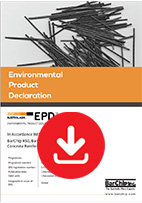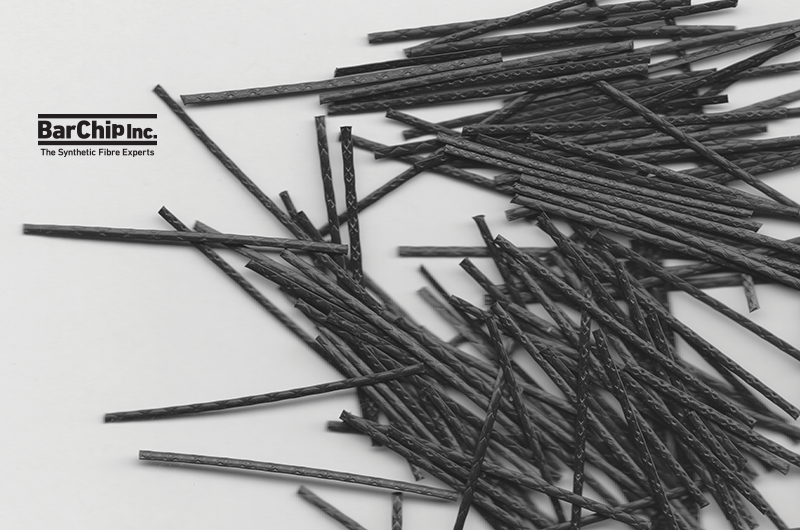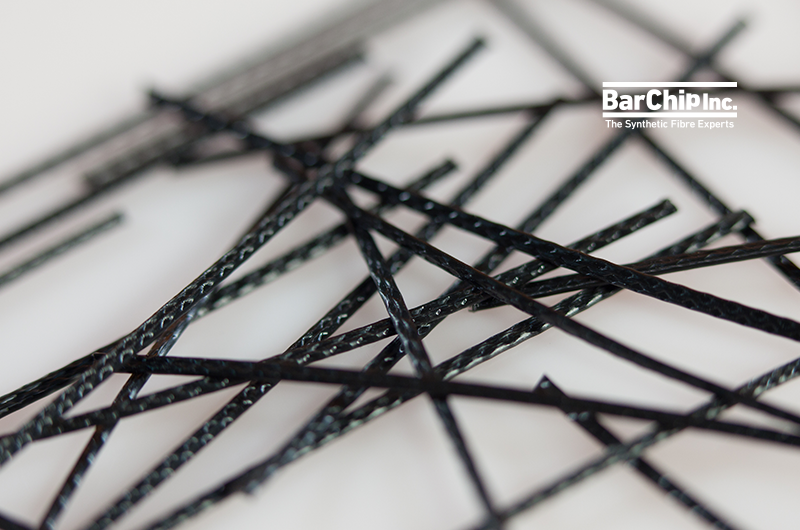BarChip Recycle Over 3,700 Tonnes of Plastic for Synthetic Fibre Shotcrete Reinforcement
BarChip R50 and R65 concrete fibre is made with a combination of recycled and virgin polypropylene. Since R-Series was introduced to market, BarChip has recycled over 3,700 tonnes of plastic into mining and tunnelling ground support works. Compared to traditional steel alternatives, this has reduced the carbon footprint of shotcrete ground support reinforcement by over 70 million kg of carbon.
The United Nations global initiative for climate action is striving for an ambitious goal of achieving net zero emissions worldwide by 2050. This collective effort demands substantial investments from all companies within the global mining and tunnelling industries. A crucial aspect involves the widespread adoption of low and zero-emission technologies. While there is a notable focus on large-scale investments like renewable energy and battery storage, industries must also explore low-carbon technologies throughout their entire supply chain to meet this target and validate their Environmental, Social, and Governance (ESG) credentials.
One technology available right now is recycled macro synthetic fibre (MSF) shotcrete reinforcement, which is used as part of the ground support system in underground excavations.
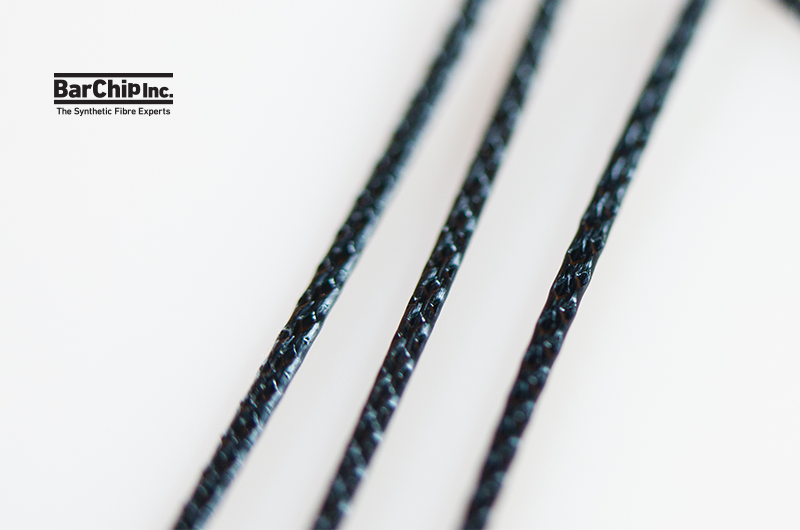
Although many fibre products exist in the market today, BarChip’s R-Series fibre is the only one made with recycled plastic that can be used in deep mine ground support work.
BarChip Marketing Manager Geoff Sedgman explains the biggest issue with using recycled plastics is maintaining performance. “Every percentage point of impurity in the recycled plastic results in an increasing loss of ductility performance in the final product,” he said. “BarChip has found the right balance of recycled polypropylene (PP), virgin PP, and manufacturing processes, to ensure R-Series maintains-performance at large deflections.”
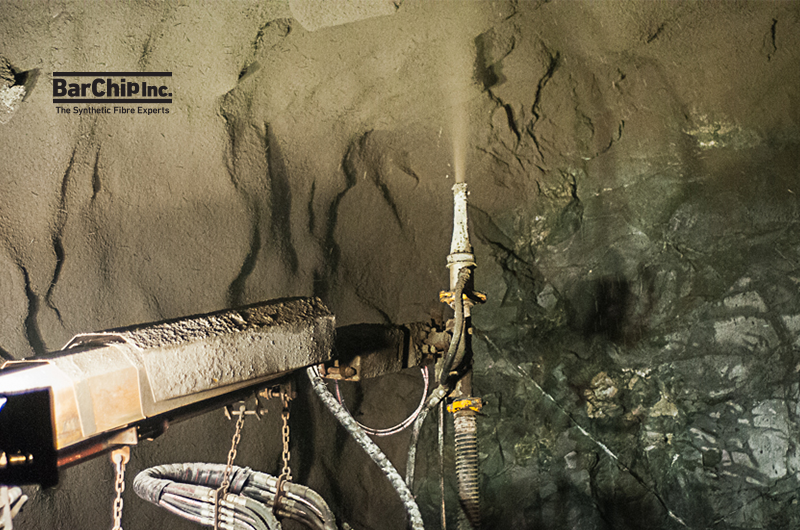
Low Carbon Concrete and Shotcrete Reinforcement
BarChip R-Series was EPD certified in 2020, which allows its environmental impact in comparison to alternative products to be accurately calculated.
Since the R-Series first came to market, BarChip has recycled more than 3,700 tonnes of plastic for re-use in ground support works. That’s a saving of over 8 million kilograms of carbon compared to non-recycled MSF products.
Compared to traditional steel fibre, or steel bar reinforcement, BarChip fibre reinforced shotcrete has reduced ground support carbon footprint by more than 70 million kg of carbon, enough to power more than 13,000 homes for a year.
Sedgman added that in Australian mining, the market for fibre is estimated to be around 300 tonnes per month. “With BarChip R-Series, this represents an opportunity to recycle over 70 tonnes per month directly into ground support works. That’s a saving of over 1,800 tonnes of carbon each year, enough to power 350 homes, all from one material selection.”
While the benefit is comparatively small compared to larger investments like renewable energy or hydrogen cell batteries, the savings from low emission products like BarChip can be realised right now, with no investment required. The cumulative effect of products like BarChip across the entire supply chain can have a marked impact towards net zero by 2050.
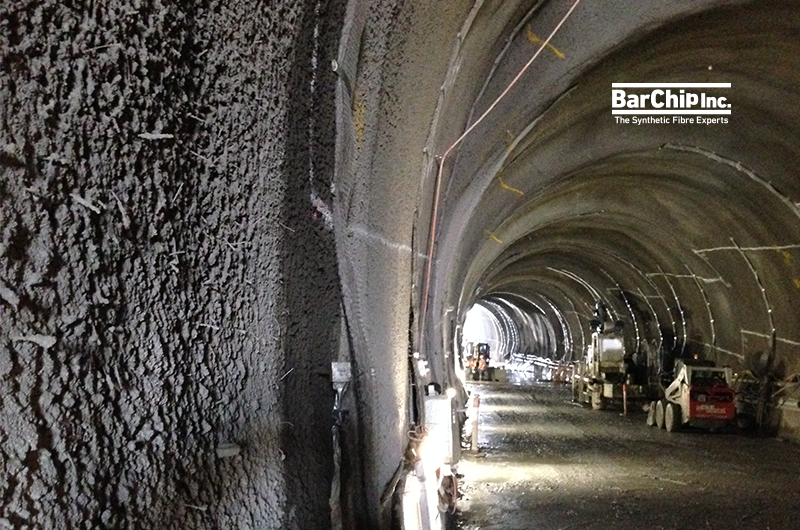
Just like mining and construction companies, BarChip is strongly focused on continuously improving its own supply chain and its subsequent environmental impact. This has flowed into the company’s product packaging, with product bags added directly to the concrete to eliminate waste and pallets made with recycled plastic. Once used, they can be delivered to the nearest recycling centre and given a ‘third life’.
In 2023, the company opened a new factory in Paraguay that is 100 percent powered by renewable energy, providing the lowest carbon footprint fibre reinforcement product on the market. BarChip now has manufacturing operations on three continents, ensuring a strong and stable product supply around the world.
For more information email info@barchip.com. and ask us about our recycled fibre.

